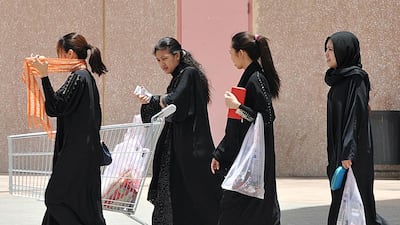Saudi Arabia has banned the word “maids” for being derogatory under new regulation aimed to uphold the rights of foreign workers in adverts for new jobs and during the recruitment process.
The Saudi Ministry of Commerce said job adverts should not include terms like “servant” or “maid” and instead advertise for “workers”.
In adverts, terms like “to sell”, “to buy” or “to dispose of” when it comes to contracts relating to people will also be replaced with “transfer of service”.
The new directives also stipulate that workers will not bear any financial costs “under any circumstances” for exchanges of work permits or similar paperwork changes, these changes can only be done with the worker’s consent and employers cannot refer to such payment claims in job advertisements.
Adverts cannot publish personal photos, identity card copies, residency permit (iqama) or any other personal data.
The kingdom is home to 10 million foreign workers including 3.7 million domestic workers and has taken a raft of measures in recent years to boost employment protection and prevent abuse.
Several Saudis and ex-patriate living in the kingdom said they think it is “high-time” and “only right” to end all sorts of discrimination.
Zainab Yusuf, a photographer from the Philippines who lives in Jeddah, told The National she was pleasantly surprised by the news.
“In today’s age, we cannot have room for racism and discrimination. We cannot raise our children to believe those who work in our homes are lesser than us by using terms like ‘khadama’ (female servant) in Arabic I feel they are both degrading,” she said.
“It is time to change our mindset and this can be done by changing our vocabulary and actions. Give everyone dignity of labour, domestic workers or CEOs we are one and the same,” Ms Yusuf added.
Parents have also welcomed the news, saying such values must be instilled in children at a young age.
“I am so surprised to hear this because I have raised my kids the same way, we have always called them helpers, not maids. I think it’s important for the society to reflect and encourage good manners and respect every member of society,” said Madiha Khan, an Indian ex-patriate living in Dhahran. “Although, I believe the disparity is much greater in India. Wish we could have such laws back home that will teach society how to treat people regardless of status.”
Amal Zahrani, a Saudi artist in Jeddah, said it is only right to show due respect to people who travel thousands of miles from home to work in the kingdom.
“I think this was much-needed. They are only human and deserve to be respected. Thousands of domestic workers leave their families and children to come work for Saudis and it is not easy on them. It is their right to be respected and loved,” She said.
“They play a huge role in households and helping us sustain them. Our helper is my child’s second-mother and he proudly says it. She is part of our family and it would be wrong to think of her as anything less,” Ms Zahrani added.
Since March 14, expatriates no longer need their employers' permission to change jobs, travel or leave Saudi Arabia, as part of the National Transformation Program under Vision 2030.

